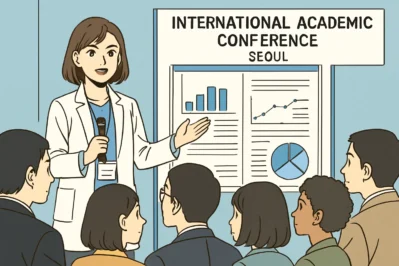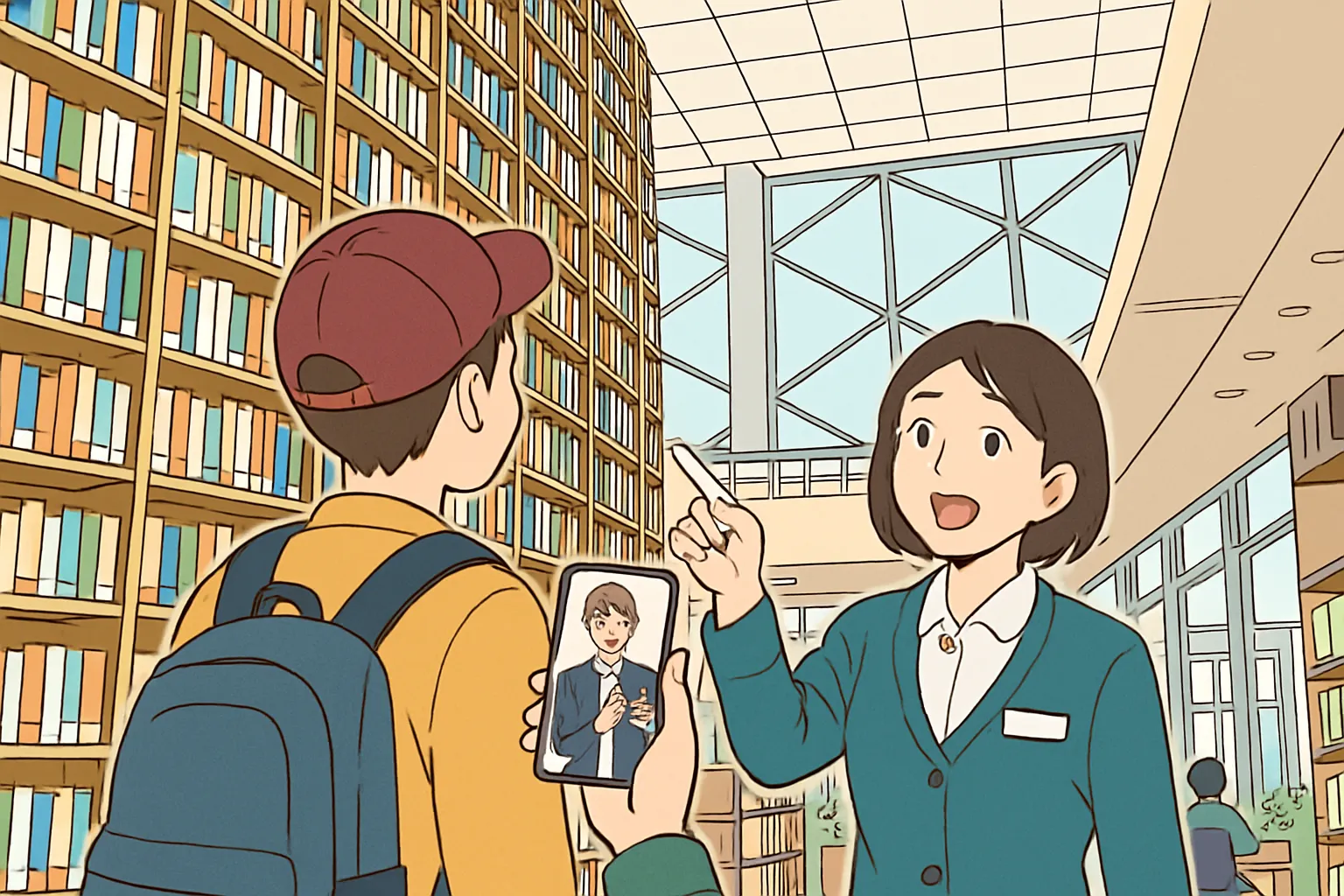Hello! This is Maeil Hangeul, here to upgrade your professional Korean skills!
Have you ever imagined presenting your important research at an international conference in Seoul? Today, we’re going to learn the essential Korean phrases you need to prepare and present a research poster like a seasoned professional. Lately in Korea, there has been a significant increase in international forums focused on global issues like development cooperation and the Sustainable Development Goals (SDGs). This means more opportunities for global experts like you! Let’s master the key language to make your research shine.
Core Expressions for Your Presentation
Here are some high-level phrases that will make you sound polished and professional.
1. ~에 대한 심층 분석 (~e daehan simcheung bunseok)
* Pronunciation [Romanization]: [~e daehan sim-cheung bun-seok]
* English Meaning: In-depth analysis of ~
* Detailed Explanation: This is a formal, academic phrase perfect for the title or introduction of your poster. It signifies that your research is not just a superficial overview but a thorough, detailed investigation. Using 심층 (deep layer) instead of just 깊은 (deep) elevates the academic tone.
2. 시사하는 바가 크다 (sisahaneun ba-ga keuda)
* Pronunciation [Romanization]: [si-sa-ha-neun ba-ga keu-da]
* English Meaning: To have significant implications; to strongly suggest.
* Detailed Explanation: This is a powerful phrase for your ‘Discussion’ or ‘Conclusion’ section. Instead of simply saying “the result is important,” this expression conveys that your findings have broader meaning and consequences for the field. It’s a standard way to emphasize the weight of your research.
3. 후속 연구가 요구되다 (husok yeon-guga yogudoeda)
* Pronunciation [Romanization]: [hu-sok yeon-gu-ga yo-gu-doe-da]
* English Meaning: Follow-up research is required/needed.
* Detailed Explanation: This is a classic phrase used in the concluding part of academic papers and presentations. It shows that you understand the limitations of your current study and can thoughtfully propose future directions. The passive form 요구되다 (to be required) makes it sound objective and formal, which is appropriate for academic discourse.
4. 이 자리를 빌려 (i jarireul billyeo)
* Pronunciation [Romanization]: [i ja-ri-reul bil-lyeo]
* English Meaning: I’d like to take this opportunity to…
* Detailed Explanation: This is a very polite and formal set phrase used at the beginning or end of a presentation. It’s often followed by words of gratitude (감사 인사를 드립니다). Using this phrase demonstrates humility and respect for the event organizers and the audience, which is a key part of Korean professional etiquette (예의).
Example Dialogue
Let’s see how two researchers, Min-jun (A) and Sarah (B), might use these expressions while preparing for the “Seoul International Development Cooperation Conference.”
A (Min-jun): 사라 씨, 우리 포스터 제목은 ‘기후 변화 대응 ODA 사업에 대한 심층 분석’으로 확정할까요?
(Sarah, should we finalize our poster title as ‘An In-depth Analysis of ODA Projects for Climate Change Response’?)
B (Sarah): 네, 좋아요. 간결하고 전문적으로 들리네요. 결론 부분에는 우리 연구 결과가 향후 정책에 시사하는 바가 크다는 점을 강조해야겠어요.
(Yes, that’s great. It sounds concise and professional. In the conclusion, we should emphasize that our findings have significant implications for future policy.)
A (Min-jun): 맞아요. 그리고 연구의 한계를 언급하면서, 장기적인 효과 측정을 위한 후속 연구가 요구된다고 마무리하면 완벽하겠네요.
(Exactly. And it would be perfect if we conclude by mentioning the study’s limitations and stating that follow-up research is required to measure long-term effects.)
B (Sarah): 알겠습니다. 발표 시작할 때, “이 자리를 빌려 귀한 기회를 주신 주최 측에 감사드립니다.”라고 말하는 연습도 해야겠어요.
(Got it. I should also practice saying, “I’d like to take this opportunity to thank the organizers for this valuable chance” at the beginning of the presentation.)
Cultural Tip & Trend Deep Dive
In Korean academic and professional settings, communication is often indirect and places a high value on formality and respect.
- Demonstrating Expertise: Phrases like
~에 대한 심층 분석and시사하는 바가 크다are not just about translating words; they are about positioning yourself as a serious, credible researcher within the Korean academic framework. - The Importance of Humility: Concluding with
후속 연구가 요구되다is a sign of academic humility. It shows you are aware that research is an ongoing process, not a final declaration. This is highly appreciated. - Connecting with KOICA: As Korea’s official development aid agency, KOICA (한국국제협력단) frequently publishes reports and holds forums. You will find today’s expressions used extensively in their official documents. Understanding this vocabulary is key to engaging with the Korean development cooperation sector.
Wrap-up & Practice!
Today, we learned four crucial expressions to help you navigate a professional poster presentation in Korean. You now have the tools to define your topic, emphasize your findings, suggest future steps, and show gratitude with politeness and professionalism.
Now, it’s your turn to practice!
- Fill in the blank:
- 이 연구는 국제 보건 분야에 _______________. (has significant implications)
- Make a sentence:
- Imagine you are presenting your own research (or a topic you’re interested in). Write a concluding sentence using the phrase
후속 연구가 요구되다.
- Imagine you are presenting your own research (or a topic you’re interested in). Write a concluding sentence using the phrase
Leave your answers in the comments below! We are excited to see you use these new expressions. Good luck with your research






